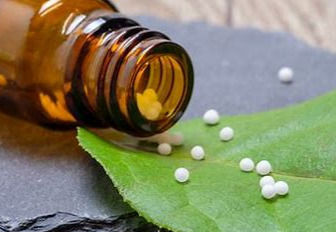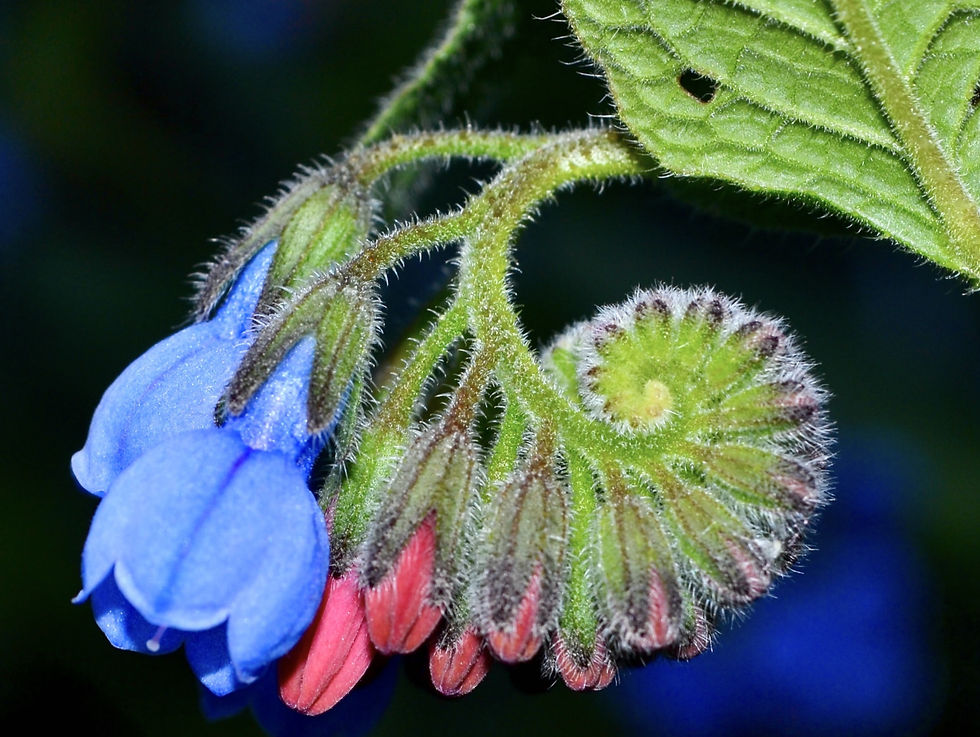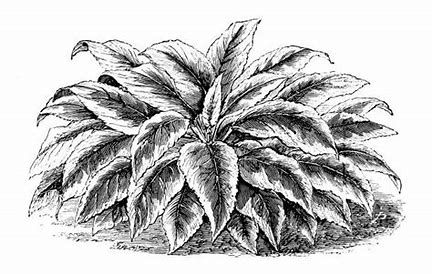The Comfrey Conundrum
- Linda Crider

- Aug 23
- 3 min read
Updated: Sep 10

Over the years I've often found myself telling my beginning herbal remedy students that although herbs are amazing and effective healers, they can't always substitute for more conventional medicine practices. I would use the example of breaking a bone. When this happens, there isn't a tea or tincture that could replace a visit to the emergency room. Now that I'm more into the energetics of plants, I see that I neglected to stress taking a more integrative approach by incorporating an herb like COMFREY. This plant, labeled botanically as Symphytum officinales, is also known as "boneset" or "knitbone" and with good reason.
Comfrey may not be able to magically reset a broken ankle, but this flowering botanical has a stellar reputation that dates back to 400 B.C.E. It was used by the ancient Greeks, Romans, Celts and other cultures for its ability to aid in binding serious wounds and mending broken bones. The Greek word symphyo means "grow together" (think symphony) and phyton meaning "plant." In today's herbal community, it is still recommended and well respected but does come with a caution attached.
I borrowed the title of this post from a youtube video since this plant is one of those that I can recall from my health food store days as being controversial enough to merit some negative publicity. Although it was actually used in the 1840's as a food staple during the Irish Potato famine, it's a good example of how even plant remedies that may be "natural" also need to be approached with care. In the case of Comfrey, too much of a good thing can cause some liver issues, so I have found it wiser to suggest it in the form of a topical application or homeopathic remedy.
As a cream or poultice, this herb can be soothing and healing for irritated skin. In fact, Comfrey can be so effective in heal a cut that herbalists warn not to apply it immediately to an open wound to avoid the skin closing over a possible abscess.
My personal favorite way to benefit from Comfrey's healing power is to take in its energetic

signature in the form of a homeopathic remedy. This form can have a healing effect not only on a physical level, but on emotional and spiritual levels as well.
This ties in with herbalist Adriana Ayales' explanation about how "Comfrey represents wholeness, completion and closure of a great cycle." That sounds like quite a tall order for a perennial wildflower, but if you also consider it from an astrological perspective it comes under the rulership of Saturn, the planet that "grants wisdom through challenges." More to the point here, you might say it helps with restoring or completing a wounded psyche.
Recently, I was guided to focus more on the color blue. I chose this plant for August's new moon post since Comfrey most commonly blooms in purple and white (as pictured on the card above), but one species produces flowers that start out pink and then blossom into a lovely shade of Cerulean blue:

I also believe that there are few, if any, coincidences, so if you are reading this, maybe you or someone you know would benefit from the mending power of Comfrey on either a physical or spiritual level. Again I suggest the homeopathic version that goes by the name of Symphytum for non-physical issues. This can be found online or at any natural product stores. For any hands-on Comfrey growers out there who want to make a poultice from the fresh, mucilaginous leaves, here's a quick tutorial from Old Alabama Gardener that includes one that can be used immediately or kept frozen for future use.
FYI: You can find Comfrey in different herbal forms here
Thanks to my friend and fellow wisdom seeker/keeper, Elisa Chastaine, I now have short videos that expand on my written posts. These appear on her popular youtube platform
As always, thanks for letting me share my thoughts and journey with you. I welcome your input, so if you want to submit a comment, scroll down to the bottom of this post. If you are interested in booking a personal session, you can do this here:
You can also contact me via email at: my.plant.allies@gmail.com
For now, here's wishing you wellness, wisdom and bloomin' vibes!





Love the Capricorn and crystal images on this card, and love the properties of the plant! Thanks Linda!!